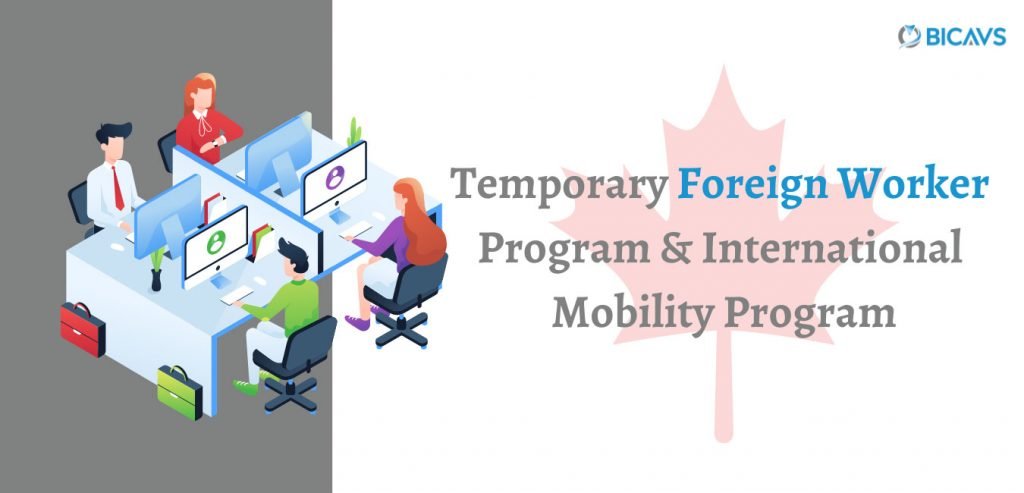The Temporary Foreign Worker Program (TFWP) allows Canadian employers to hire foreign nationals to fill labour shortages in Canada. The International Mobility Program (IMP) promotes Canada’s broad economic, social, and cultural interests.
Employers looking to hire under the TFWP need to complete the Canadian government’s labour market test, known as the Labour Market Impact Assessment (LMIA). On the other hand, a foreign national does not need an LMIA to obtain a work permit under the IMP. Learn more below.
Overview of the TFWP and IMP
Canada offers over 100 different pathways for foreign nationals to work in the country temporarily. The pathways are divided between the Temporary Foreign Worker Program and the International Mobility Program.
The Temporary Foreign Worker Program (TFWP) is jointly administered by Employment and Social Development Canada (ESDC) and Immigration, Refugees and Citizenship Canada (IRCC). The program allows Canadian employers to respond to genuine labour shortages by allowing them to hire internationally while ensuring that Canadian citizens and permanent residents have the first opportunity to apply for open job positions.
The International Mobility Program (IMP) is administered by IRCC. This program exists to promote Canada’s broad economic, social, and cultural policy objectives. As such, in addition to facilitating the arrival of foreign workers to address labour market needs, it also exists to allow foreign workers to enter Canada to strengthen bilateral and multilateral ties between Canada and the global community, as well as to promote the likes of arts, culture, sports, and religion in Canada.
The main difference between the TFWP and IMP is that the TFWP requires the completion of the Canadian government’s labour market test, known as the Labour Market Impact Assessment.
Labour Market Impact Assessment
A Labour Market Impact Assessment (LMIA) and a temporary work permit are required to be obtained before a foreign national can begin working for the Canadian employer through the TFWP. An LMIA is a document that serves as proof that there will be a positive or neutral impact on the Canadian labour market if the employer hires the foreign worker.
Employers in Canada should be aware of the requirements, wages, advertisement efforts, exceptions to the advertising requirements, and how to apply for a Labour Market Impact Assessment.
Exemptions to the LMIA requirement include jobs that do not fall under the auspices of the TFWP. Offers of employment made by Canadian employers to foreign workers through the International Mobility Program (IMP) do not require an LMIA to be obtained.
Comparing the TFWP and IMP
Temporary Foreign Worker Program
- For employers to fill jobs in cases where qualified Canadians are not available
- LMIA must be obtained
- Lead department ESDC
- No reciprocity, based on labour market needs for specific occupations and regions
- Employer-specific work permits (foreign workers are tied to one employer)
- Uses wage instead of National Occupational Classification (NOC) to determine the applicability
International Mobility Program
- To advance Canada’s broad economic, social, and cultural national interests
- Based largely on multilateral/bilateral agreements with other countries (e.g. CUSMA)
- No Labour Market Impact Assessment is required
- Lead department IRCC
- Based largely on reciprocity
- Work permits may be employer-specific or open, depending on the situation or agreement
- Does not stream by wage offered








